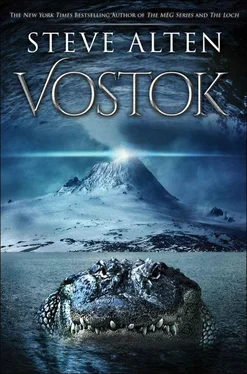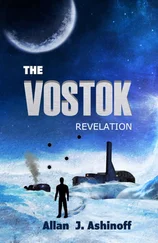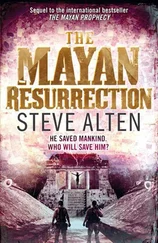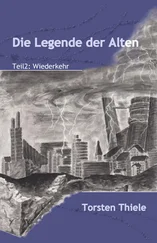“I’ll get Ming started back down.” He unclipped his rope from his harness.
“Ben, wait. Maybe you and I shouldn’t split up. It might be safer if we hit the remaining two sites together.”
“According to the GPS, the remaining targets are three kilometers from here. Roundtrip, that’s just under a four-mile hike for each of us, plus the return trip back down the slope. If we did it together, we’d end up having to circle the entire base of the mountain, doubling our journey. That equates to an extra hour or more in this cold. All things being equal, I’d rather get the job done sooner alone than face freezing to death in pairs.”
“And if one of us gets back here first? Do we wait for the other guy before we head back down, or do we meet at the sub?”
“We wait. Let’s say fifteen minutes. If the other guy doesn’t show up by then, we’ll meet at the sub.” He held out a gloved hand. “See you back here in thirty minutes.”
“Or less.” We shook on it; then he was off, setting a quick pace to the east.
I returned to Ming, detaching the two climbing ropes from her harness. “Ming, you can’t stay out here. Do you have the strength to make it back down to the sub on your own?”
She nodded and stood. “Getting down is far easier than climbing.”
I coiled one of the two lengths of rope, shoving it inside her backpack. “Follow our tracks; they’ll take you right to the sub.”
She offered me a pained smile and a thumbs-up; then she set off.
I coiled my rope and stowed it in my backpack as I watched Ming head slowly toward the fog bank. Then I climbed to the base of the mountain and headed west.
Mountain. Not alien spaceship.
As intriguing and believable as Captain Benjamin Hintzmann’s close encounter stories had been, once one removed the storyteller’s embellishments I knew there was a reasonable explanation for everything.
The same could be said about Lake Vostok’s extreme variations in pressure. Magnetic anomalies in Antarctica were far from unusual, and an asteroid impact in a volcanically active region would yield a powerful magnetic resonance. As far as I was concerned, establishing a sensory array around an impact zone was standard operating procedure.
No, what concerned me wasn’t the Colonel, it was Ben. The captain’s behavior was anything but S.O.P. for a former member of the U.S. Armed Forces. Pilots simply didn’t abandon their wingmen to turn the mission into a race. They stuck together against the elements, even if it meant walking a few extra miles in extreme weather conditions.
Yet Ben had not only preferred to separate, he’d seemed eager to go off on his own.
He thinks there’s a spaceship down here, and he means to prove it to the world. Maybe he’ll find an entrance inside. He’ll snap a few hundred photos with his iPhone and send them off to Steven Greer and the rest of the E.T. screwballs in hopes of reclaiming his career .
The sudden realization of Ben’s circumstances gave me pause.
He’s a lot like I was. After the Sargasso Sea incident, my career was in serious jeopardy. When Angus tricked me into testifying at his trial, and the Inverness judge practically stripped me in court to reveal scars from a childhood attack on Loch Ness, my name was reduced to a punchline on late-night television. All my hard work and field research as a marine biologist — down the drain. My reputation was destroyed, my career in ruins. In the end, I had done exactly what Ben was attempting to do now: prove to the world he was right .
Feeling like the world’s biggest hypocrite, I picked up my pace.
* * *
Twenty minutes passed. I had managed to forge a path as close to the base of the mountain as possible, taking advantage of the patches of exposed rock, but as I neared the area targeted on my GPS I was forced to move farther out, exposing myself to snow drifts and unseen crevasses. I was shivering badly, and my resolve was weakening.
The designated site was another thirty feet or so down a steep embankment. I stared at the spot.
Ten more paces across virgin snow. Three minutes max to set up the sensory device .
The air was thick and static, the snow muffling all sound. I remained motionless, listening to my rapid breaths, my life reduced to the emerald-green boundaries within my goggles.
I was hesitant. I was afraid.
What if the snow was over my head? What if I couldn’t make it back up the hill?
Remembering the rope, I retraced my steps up the embankment to a cluster of boulders located at the base of the mountain, the smallest of which outweighed me by a solid ton. Removing the nylon rope from my backpack, I tied off one end around the nearest boulder and clipped the free end to the belt around my waist.
Feeling more confident, I backed down the hill, moving beyond my own tracks as I watched the GPS screen in my gloved hand.
I was chest-deep in snow when the target finder finally blinked green.
Working quickly, I freed the sensory device from its lead case, extended the support pole to its maximum length, and tomahawked the antenna into the snow drift so that only the octagonal sensor was showing.
I powered up the unit. Feeling a bit dizzy from the high oxygen content, I paused to rest while the sensory array triangulated.
I gazed overhead as the ice sheet rumbled like an approaching storm. Inching its way east toward Prydz Bay, the thirteen-thousand-foot-thick cap of packed snow was a living entity that affected the entire planet. For fifteen million years its weight had been held in check by an unseen magnetic source, and in the battle for supremacy, the resultant equilibrium had carved out a neutral zone where life had continued to flourish. Even now, the weight of the glacier was squeezing billions of gas particles of oxygen and nitrogen into the lake just so its trapped inhabitants could breathe.
Breathe .
Breathe, Zachary, breathe!
“Huh?” I raised my face out of the snow and gasped a breath.
Something had happened! Why couldn’t I see?
For a terrifying moment I thought I had gone blind. Then I realized I had lost my night-vision goggles. A horrible pain radiated from my chest, the tightness clenching me beneath both armpits.
I was spinning, dangling from the rope in complete darkness. Reaching out, I brushed a rock face. That’s when I realized what had happened — I had fallen into a crevasse.
How deep was the fissure?
Without my night-vision goggles, I couldn’t see my own two hands in front of my face.
Cold, scared, and disoriented, I did the only thing I could: I climbed.
Using the rope for support, I walked my way up the rock face using my spiked boots. The rope was eighty feet long, but half its length remained topside so it only took me a few minutes to reach the ledge.
Sensing a change in the air current, I pulled myself out of the crevasse and onto my heaving chest.
For a desperate moment, I blindly felt along the snow for my goggles. Remembering the flashlight, I felt for its cord and powered on the light.
The beacon cut a narrow swath through the darkness. The crevasse at my back ran north-south, cutting a jagged eight- to ten-foot-wide gap fifty feet or so below the base of the mountain. The rift appeared to have swallowed the sensory device — and me with it.
Why had it opened? Could the sensory array have triggered it?
I shone the light down its gullet. The walls of the crevasse descended four or five stories, ending in a pile of snow.
Aiming the beacon ahead of me, I searched again for my goggles. Tracing the impression my body had left as I slid into the crevasse led me to them, the snow around them streaked with blood.
Читать дальше












